At Diplomatic Center and PyunKang Oriental Clinic
Ambassadors and other senior members of the Diplomatic Corps in Korea (DCK) visited had a rare opportunity to hear a lecture on Oriental medicine given by Dr. Seo Hyo-seok, director of the PyunKang Oriental Clinic, at the Diplomatic Center in Seocho-dong, Seoul in July 18, 2016, and toured the Clinic following the lecture to sample some Oriental medicine Dr. Seo has developed.
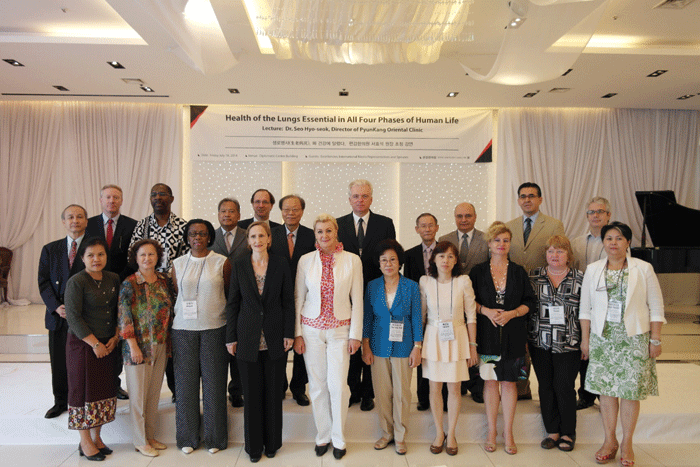
At the lecture, Dr. Seo emphasized the importance of preservation and promotion of the health of the lungs that greatly influences the proper functioning of other organs of human body.
Welcoming the distinguished guests, Dr. Seo said it was a great for him to have the rare opportunity to invite the distinguished guests at this time when people are all preparing for a better future in the ‘Age of 100 Years and Beyond.’
He said, “It is said that there are territorial boundaries in the world of politics and economics but that there are no such boundaries in our combat against diseases.” Then he said that the humanitarianism of PyunKang (his Oriental hospital) is for the benefit of all the peoples of the entire world.
He said: “I have been sending a message of hope to the patients of intractable diseases around the world with a wondrous remedial method for such diseases through improvement of the level of immunity in us for the health of lungs. Now I wish to share this good news with the distinguished guests at this meeting.”
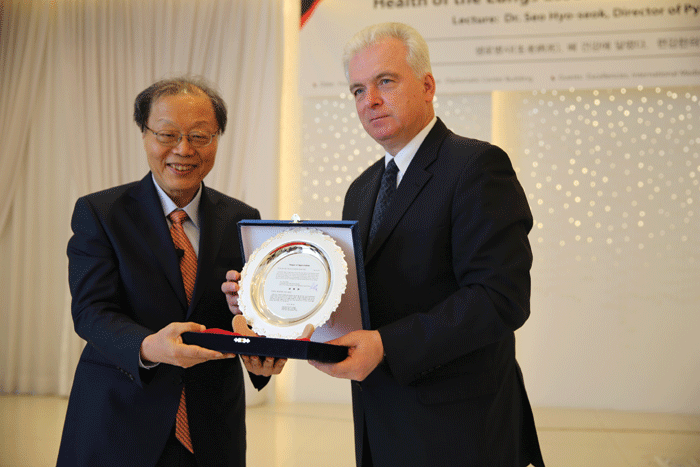
He disclosed that ways are opened to the cure of the atopic diseases only when the pores of the hair and sweat are widely opened so that perspiration freely takes place. “Atopic patients,” he recommended, “should be much streamed with perspiration to get the benefit of complete cure.” Then he said that “as a doctor who has successfully cured a total of 40,000 atopic patents, I am sharing this message with you with full confidence.”
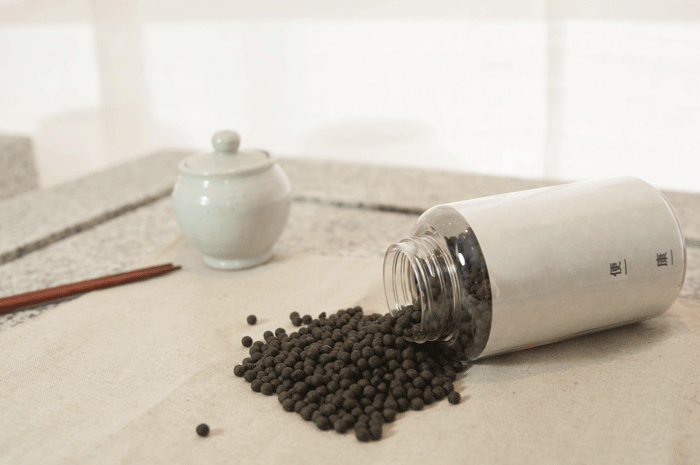
Then he stated: “The human body is very honest. The body has the ascriptive function of disposing out of the body all the things that come in through the five sensory organs. How wonderful it would be if these things that come into the body are unpolluted clean water, food, air and beautiful sceneries.
“Unfortunately, however, they are not. And they cause all kinds of diseases and problems inside the body.
“When the body is fatigued and exhausted from the busy urban life and when all its organs become weak to a great extent then come in all kinds of pathogenic organisms and dwell inside the body.
“Whatever diseases we may have inside our body, we also have a miraculous remedial method there inside. It is important for us to trace and discover the original cause of the disease and seek ways to cure it with a firm determination and effort to attain such a miraculous result. Only then will come the miraculous cure of the disease.”
Dr. Seo’s welcome speech was accorded with a return speech by Ambassador Dusan Bella of the Slovak Republic, who was the most senior among all the ambassadors attending the lecture that day, and performed the role of the dean of the visiting members of the DCK.
Ambassador Bella, whose wife, Mrs. Eugenia Bellova, herself was a doctor of medicine, said, “There is an Arabic saying, ‘He who has health has hope, and who has hope has everything.’ You all here in Pyun-Kang Oriental Clinic are bringing a hope back to the people. You are those who are delivering human-oriented medical treatment not only through high quality medical services, but also through exceptional care and love.” (Excerpts from his return speech are toward the end of this Article.)
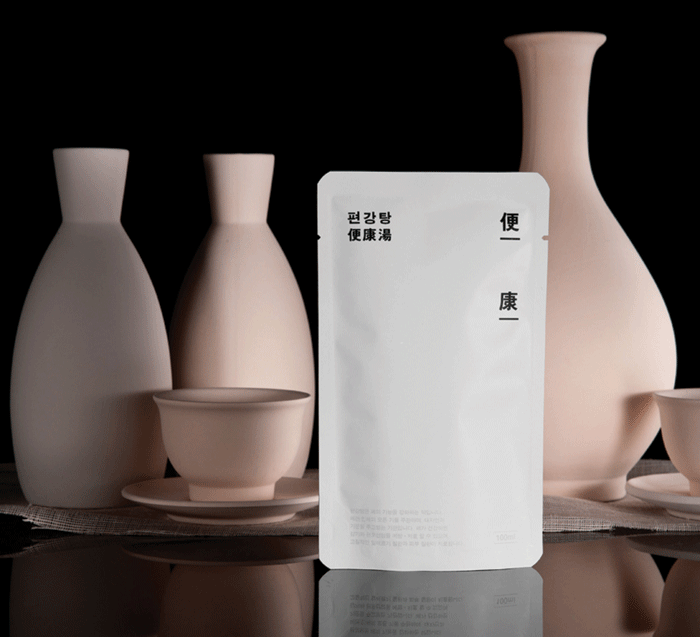
Excerpts from the return speech by
Ambassador Bella of Slovakia:Honorable Dr. Seo Hyo-seok, Director of Pyun-Kang Oriental Clinic, Distinguished Chairman Lee Kyung-sik, Excellencies, Ladies and Gentlemen!
First thing, allow me on behalf of participating diplomats to express our sincere thanks to Director Seo for his kind invitation to the Pyun-Kang Oriental Clinic, which is bringing health and hope to many people in Korea as well as abroad.
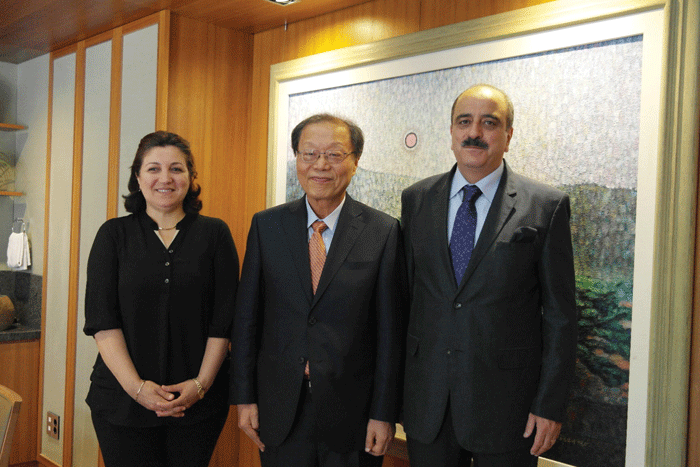
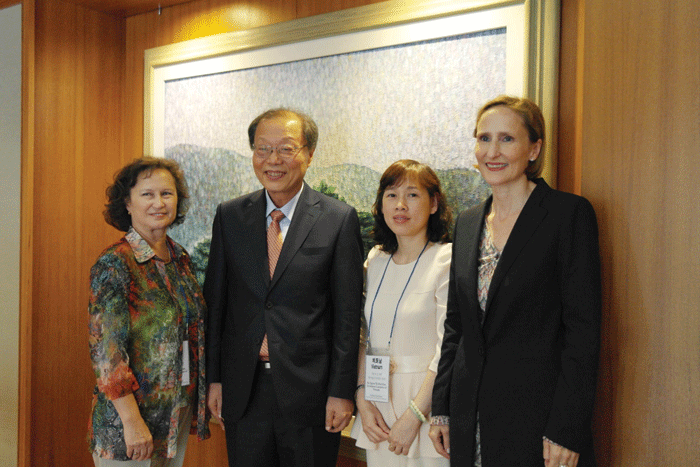
There is an Arabic saying that “He who has health has hope, and who has hope has everything.” You all here in Pyun-Kang Oriental Clinic are bringing a hope back to the people. You are those who are delivering human-oriented medical treatment not only through high quality medical services, but also through exceptional care and love.
When we talk about Korean traditional medicine, we know that it can be traced back as far as 3000 B.C. Few months ago we celebrated with the Korea Post in Yeongam County the achievements of Doctor Wangin, who travelled to Japan more than 1,600 years ago to spread Korean knowledge, which at that time influenced greatly all areas of Japanese life.
We also know that Korean medicine flourished especially during Joseon period when the royal physician Heo Jun published in 1613 famous Dongeui Bogam, which integrated the known Korean and Chinese medicine of that time. Even today this “Mirror of Eastern Medicine” is regarded important classics of Oriental medicine.
Another significant contribution of traditional Korean medicine is related to Sasang typology, in which person's physical constitution is classified according to the traits of an individual's mind and body. Therefore one's sensitivity and response to certain drugs and treatment differs depending on each Sasang type.
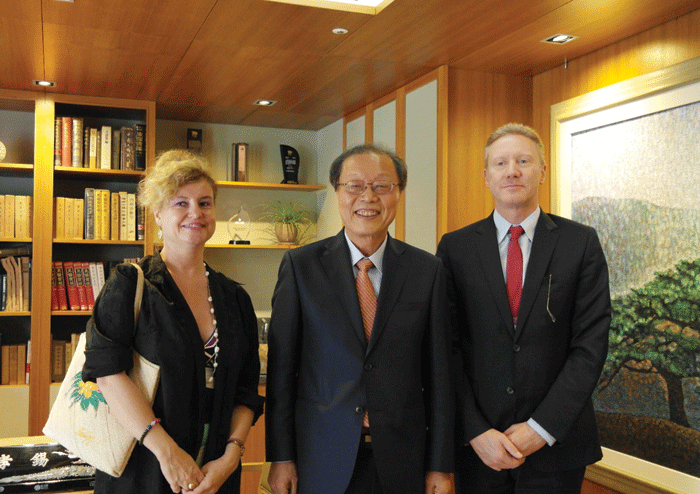
Having great admiration for Korean traditional medicine, I am very pleased to mention, that thanks mainly to my dear wife Eugenia, we managed to establish not only the first modalities of cooperation between representatives of Slovak alternative medicine and Association of Korean traditional medicine, but also tuition of Korean medicine at the Jessenius Faculty of Medicine in Slovakia starting from this September.
Finally, allow me to thank Director Seo once more for the opportunity to visit Pyun-Kang Oriental Clinic and wish him and all his collaborators a sound health, lot of energy and success in their responsible work, which is saving lives, and bringing health, joy and hopes back to many people.
Antique wisdom says, “The greatest wealth is health”. You, Dr. Seo and your Pyun-Kang Oriental Clinic, you are helping to keep and restore this wealth and that is why you deserve our great thanks, our deep gratitude, respect and admiration.
Gist of lecture by Dr. Seo on Oriental medicine:
Cause of the fourth highest mortality rate is the COPD (chronic obstructive pulmonary disease) which includes emphysema and bronchiectasis. The death rate will become third by 2030, which means a person will die from it in very ten seconds. It said that a total of 65 million persons are already serious cases of COPD and in Korea every third person among the senior citizens above the age of 65 is suffering from COPD.
The main causes of COPD are known to be cigarette-smoking, polluted air and dust at work places which, when inhaled, cause the pulmonary diseases and other ailments in the respiratory organs of the human body.
Smokers are mostly worried about the cancer of the lungs but COPD is considered to be much more serious than pulmonary cancer. This is because the people normally do not realize the seriousness of the diseases.
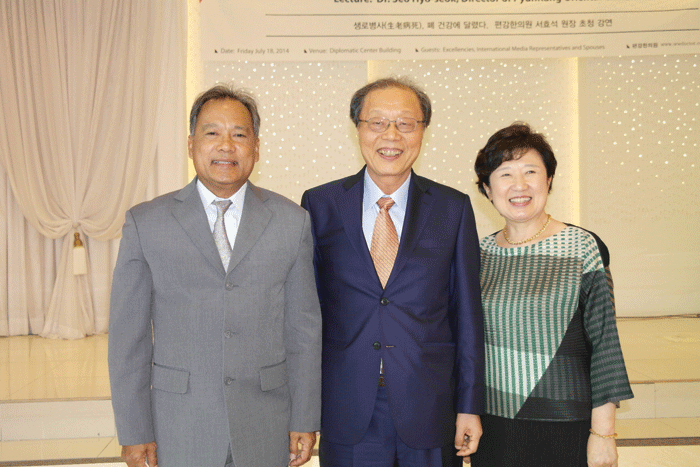
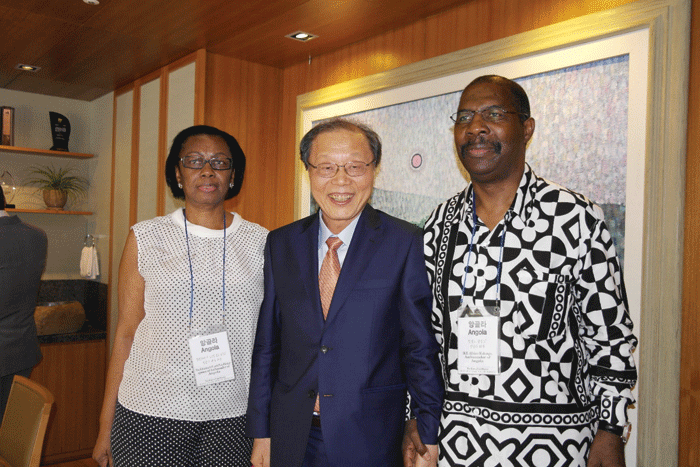
However, few people really know the danger of COPD. According to a study by the Korean National Tuberculosis Association in 2012, some 75% of the 737 smokers above the age of 45, who were most prone to the COPD, did not know what COPD meant. A total of 287 taxi cab drivers, who were among the most exposed to the polluted air, were asked if they knew what COPD meant. Nine out of ten of them did not know what it was.
Due to their ignorance of the seriousness of COPD, they seldom visit hospital to have a COPD checkup.
Seriously concerned about this situation, the PyunKang Oriental Clinic, started developing Oriental medicine to protect people from COPD.
They are Pyunkang-tang and Pyunkang-hwan. The medicine continues to gain their popularity in Korea and PyunKang now wants to further expand its clinics not only in Korea but in various countries around the world.
I constantly suffered from tonsillitis when I was a child. There were many times I couldn’t play with my friends because I was bed-ridden, and I spent many sleepless nights due to high fever. This was probably one of the reasons I decided to study Korean Medicine at the university and made endless efforts to find treatment for tonsillitis.
However, the conventional medicinal herbs and treatment methods only mitigated the symptoms and did not cure the disease completely. I was disheartened and asked myself, “How can I treat others when I can’t even treat my own condition?”
After graduating from Kyung Hee University in Seoul, my journey toward finding the perfect treatment for tonsillitis began in full swing. I examined a wide range of medicinal herbs, eating them raw and crushing, boiling, decocting and burning them for my research. Whenever I faced challenges, I sought information in medical books and even applied popular folk remedies. There were many nights when I woke up in the middle of my sleep to continue with my research.
Once, after hearing that frying a centipede called “ogong” and spraying it directly on the tonsils can improve tonsillitis, I tried it at home and it caused an unpleasant odor that stuck around for days.
There was a time when I thought pinellia would be effective, so I drank medicinal fluid containing highly concentrated pinellia as an experiment. The concentration must have been too high because I sustained sores inside my mouth and could not eat for three days.
During my research and experiments, I learned the close relationship between the lungs and atopic dermatitis, asthma, rhinitis and tonsillitis, and this realization led to the development of Pyunkang-tang. Through many clinical trials, Pyunkang-tang was used to treat many diseases arising from a respiratory system problem and was shown to be effective in treating other diseases by improving the health of the lungs.
Since its development, Pyunkang-tang has quickly emerged as an outstanding medicine for treatment of various diseases. A woman, who wanted to commit suicide after suffering from atopy for nearly 40 years, took Pyunkang-tang and re-gained her flawless complexion.
A table tennis player who had been in a slump due to rhinitis became fully cured and achieved an excellent result at an international table tennis competition. A salaried man, who constantly had to take sick leaves due to frequent colds, and a pastor, who suffered from vocal fold nodules and sinusitis, opened a new chapter in their lives thanks to Pyunkang-tang, which helped cure their conditions. It was rewarding for me as the developer of Pyunkang-tang to hear these stories, and I became more convinced of its benefits and efficacy.
Just as there is a saying that you can turn evils into blessings, I am actually grateful to have suffered from tonsillitis in childhood as this unfortunate experience has helped me develop Pyunkang-tang and help countless people. I am also determined to spread the treatment principles of Pyunkang-tang, which reinforces the lung function to eliminate the root cause of the common cold, rhinitis and bronchitis, and help treat people suffering from various diseases around the world.
I am not claiming that Pyunkang-tang is a medicine that can cure every disease and illness, and just because you take it, it doesn’t guarantee that you’ll get better. It is a medicine that helps eliminate the root cause of various diseases for improved health, and there are bound to be challenges and obstacles in the process of treatment. However, if you believe in the efficacy of Pyunkang-tang, which has been proven during the 40 years of clinical research, with patience and faith, you will regain better health just like our former patients..
PyunKang Oriental Medicine Clinic was established in Sanbon, Gunsan 165 miles south of Seoul in 1998. After graduating from the Kyung Hee University College of Oriental Medicine in Seoul in 1972, I concentrated my effort on my study of tonsillitis for 30 years to treat my own condition and as a result succeeded in the development of PyunKang-tang.
The excellent medicinal efficacy of PyunKang-tang was proven in the process of treatment of patients and it led to my expansion of my clinics and to establish branch clinics in Ansan, Myeongdong and Seocho.
PyunKang-tang concoction and PyunKang-hwan (pills) are now exported to some 30 countries worldwide and are supplied to the overseas Koreans who trust the efficacy of PyunKang-tang and PyunKang-hwan.
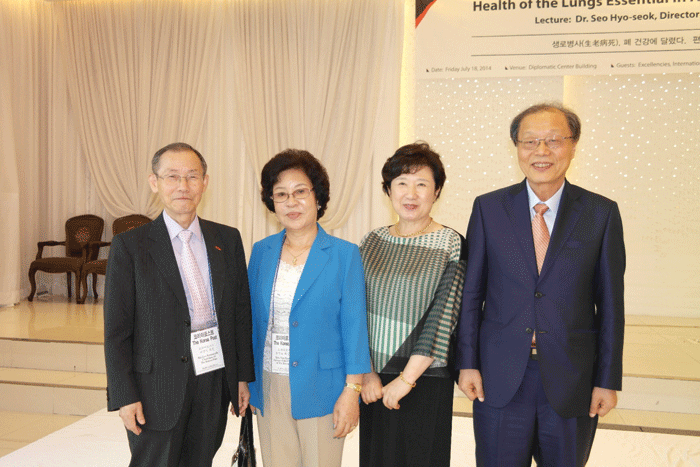
It is important that one understand the common cold is a source of various other diseases including tonsillitis, rhinitis, bronchitis, sinusitis, otitis media, conjunctivitis, asthma, pharyngitis, and pneumonia.
The respiratory system is the primary route of infection, which can occur during breathing. When the immune system and self-healing power of the body are below the normal level, the respiratory system becomes susceptible to various attacks from foreign matter including microorganisms.
The central role of the respiratory system is played by the lungs, which is also the most crucial organ for our Gi.
The lungs are the site of energy exchange between our bodies and the external environment, and maintain the energy of the body.
In order to stay healthy, we need to promote the lung functions and enhance the amount of energy we receive from nature. However, most people only use one sixth of the lung capacity, and this means that the contaminated air and foreign matter that penetrate the body cannot be filtered out.
The reduced lung functions have a negative impact on the tonsils and airway, and weakened tonsil function means lowered immunity and greater susceptibility to rhinitis, asthma and pneumonia.
Also, the lungs also affect the skin and lowered lung functions can lead to atopic dermatitis and acne. The lungs are the most crucial organ in our bodies. The main function of the lungs is to eliminate carbon dioxide and accept oxygen. Then, the oxygen is transported from the lungs to various parts of the body, including the organs, by the red blood cells (erythrocytes) in the bloodstream, while the white blood cells (leukocytes) help fight off the harmful microorganisms that enter our body such as bacteria, viruses, fungi and parasites.
In modern medicine, atopic dermatitis, rhinitis and asthma are distinguished as three separate diseases, but we take on a different view as these three conditions have the same root cause. Elimination of the root cause can help get rid of the three conditions quickly and simultaneously diseases of which the underlying cause is a problem in the respiratory system including the common cold as well as rhinitis, tonsillitis, bronchitis, asthma, sinusitis, otitis media, conjunctivitis, pneumonia, bronchiectasis, atopic dermatitis, acne and psoriasis.
Clean and purify your lungs with Pyunkang-tang! The essential part of treating a disease arising from a problem in the respiratory system is to clean and purify the lungs.
Most people in modern society spend majority of their time (more than 80% of their day) indoors in enclosed rooms and offices. Research has shown that the degree of air pollution is higher inside buildings compared to the outdoors by about 2- to 5-fold, and this can lead to the sick building syndrome.
Indoor air pollution is a major threat to people. So, it is recommended that you open the windows at least twice a day for ventilation, which helps get rid of the accumulating dust and receive fresh air from outside. This is also true for our bodies.
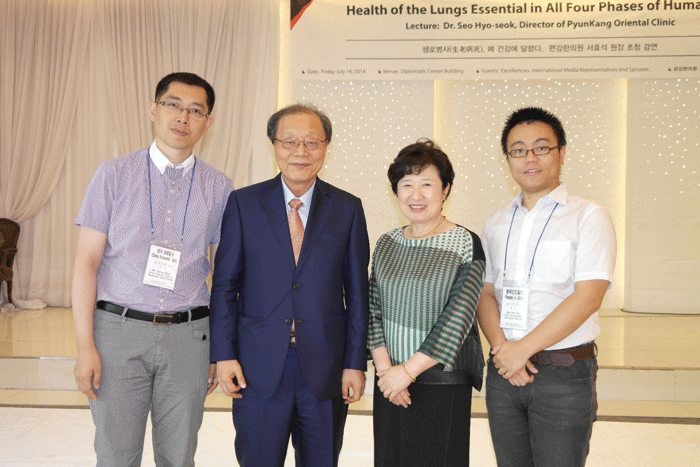
Treating the root cause for reinforced immunity and self-healing power:
The fundamental principle of treatment provided by PyunKang Oriental Clinic is not simply mitigating the symptoms of diseases, but it is to promote the lung functions and reinforce the immune system and self-healing power. To date, there are more than 150,000 patients who have benefited from Pyunkang-tang and no longer suffer from intractable allergic diseases such as rhinitis, asthma and atopic dermatitis. As such, Pyunkang-tang has been recognized for its excellent effects and efficacy and emerged as the world’s best medicine for diseases resulting from a problem in the respiratory system.
About Director Seo of Pyun- Kang Oriental Clinic:Current positions
Director of PyunKang Oriental Clinic in Seocho
Outside professor at Kyung Hee University Korean Medicine
Vice-President of the Alumni Association of Kyung Hee University
Director on the board of the Korean Alliance to Defeat AIDS
Vice-President of the Korea Global Healthcare Association
Previous positions
Director of Kyunghee Oriental Clinic in Gunpo
President of the Seoul Dongdaemun- gu Korean Medicine Association
Full-time instructor at the Oriental Hospital of Wonkwang University
Graduated from Kyung Hee University Korean Medicine
Opened Dongindang Oriental Clinic in Daejeon
Published books
Pyunkang: Road to Longevity (PyunKang Publisher, 2012)
Health Miracles (PyunKang Publisher, 2010)
From Atopy to Intractable Diseases (I-Olive, 2005)

